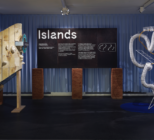Creative Commons (CC) has urged the UK’s galleries and museums to adopt the recommendations of a report commissioned by the ‘Towards a National Collection’ programme (TaNC).
The TaNC programme is a five year project by the Arts and Humanities Research Council and UK Research and Innovation. It commissioned the report ‘A Culture of Copyright: A scoping study on open access to digital cultural heritage collections in the UK’, which was published in February 2022.
The report recommends that no new rights should be able to arise in non-original reproduction media generated around public domain works in the UK.
Creative Commons, the international non-profit organisation which offers tools to overcome legal obstacles to sharing content, said following publication of the report that some UK institutions “still engage in the mistaken practice of claiming copyright over faithful digital reproductions of works.”
It said in the USA and EU no new rights can arise in reproductions of works of visual art that are in the public domain, but in the UK this has not been resolved.
The report’s findings indicate there is no consensus in the UK GLAM sector on what open access means, or should mean, and there is a “fundamental misunderstanding of what the public domain is, includes and should include”.
On the report’s findings, Brigitte Vézina, director of policy for open culture and GLAM with Creative Commons, said: “…we must prevent historical works from being locked down and seize the opportunity to deliver open access so that we can advance universal access to and sharing of knowledge and culture, thus fostering creativity, innovation, and collaboration for a brighter future.”
“GLAMs’ open sharing of public domain heritage content can unlock limitless creativity.
“When public domain works are widely shared by GLAMs, anyone can reuse them and build upon them to create something new and unexpected.
“Open access to cultural heritage holds the promise of many benefits for GLAMs themselves, including increased global visibility, new and greater audiences, and enhanced relevance in today’s digital society.”
The TaNC commissioned report can be accessed here.










